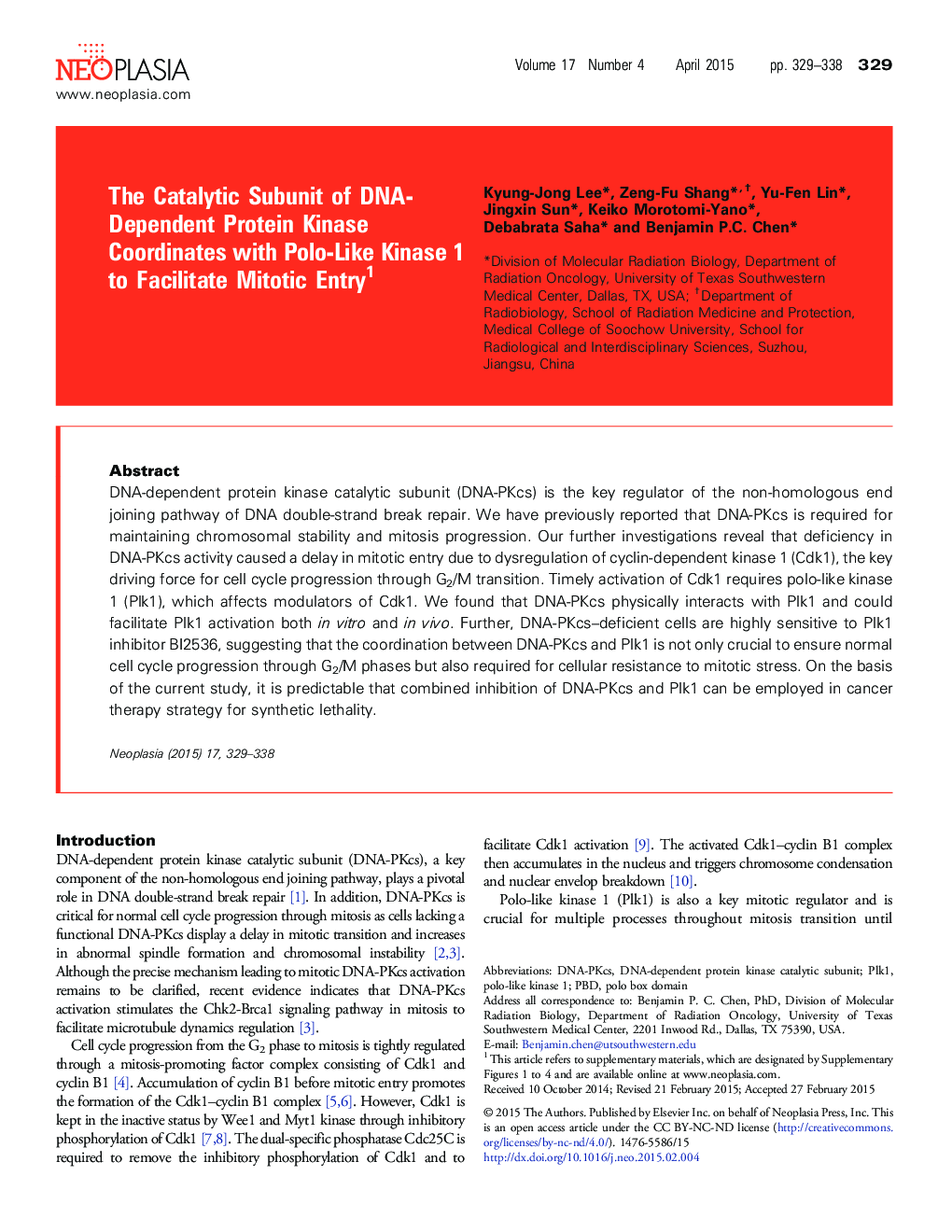| Article ID | Journal | Published Year | Pages | File Type |
|---|---|---|---|---|
| 2151171 | Neoplasia | 2015 | 10 Pages |
Abstract
DNA-dependent protein kinase catalytic subunit (DNA-PKcs) is the key regulator of the non-homologous end joining pathway of DNA double-strand break repair. We have previously reported that DNA-PKcs is required for maintaining chromosomal stability and mitosis progression. Our further investigations reveal that deficiency in DNA-PKcs activity caused a delay in mitotic entry due to dysregulation of cyclin-dependent kinase 1 (Cdk1), the key driving force for cell cycle progression through G2/M transition. Timely activation of Cdk1 requires polo-like kinase 1 (Plk1), which affects modulators of Cdk1. We found that DNA-PKcs physically interacts with Plk1 and could facilitate Plk1 activation both in vitro and in vivo. Further, DNA-PKcs-deficient cells are highly sensitive to Plk1 inhibitor BI2536, suggesting that the coordination between DNA-PKcs and Plk1 is not only crucial to ensure normal cell cycle progression through G2/M phases but also required for cellular resistance to mitotic stress. On the basis of the current study, it is predictable that combined inhibition of DNA-PKcs and Plk1 can be employed in cancer therapy strategy for synthetic lethality.
Keywords
Related Topics
Life Sciences
Biochemistry, Genetics and Molecular Biology
Cancer Research
Authors
Kyung-Jong Lee, Zeng-Fu Shang, Yu-Fen Lin, Jingxin Sun, Keiko Morotomi-Yano, Debabrata Saha, Benjamin P.C. Chen,
